By Peter Hossli (Text) and Stefan Falke (Photos)
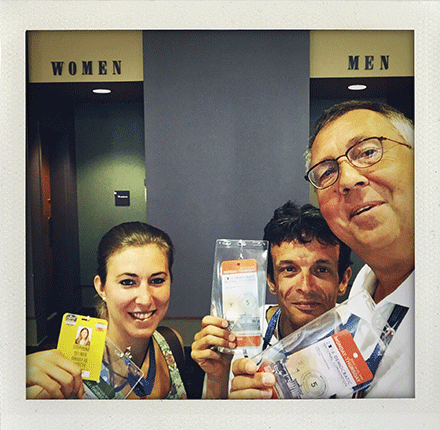
«Listen,» says Stefan, the photographer stuck behind me; unable to take a single picture because he is surrounded by people he doesn’t want to photograph. He is holding my arm. «Let’s not ever do this again.» I look over my shoulder. «No, never again.» Journalistic work is impossible when bodyguards block the access to the events you are supposed to cover.
On stage at that moment is US President Barack Obama (54). Nothing must go wrong. The bodyguards know that. We need to go up to the stands.
The electoral campaign is raging in America, and it is like a military campaign – for the candidates as well as for the many reporters who chase them.
More than 15,000 journalists cram themselves into Philadelphia’s Wells Fargo Arena, along with the same number of delegates, politicians and helpers – and said bodyguards. It is late July and the Democrats are holding their National Convention here to nominate, to the sound of lush rock music and showered with balloons and confetti, Hillary Clinton (68) as their first female candidate for the highest office in the land.
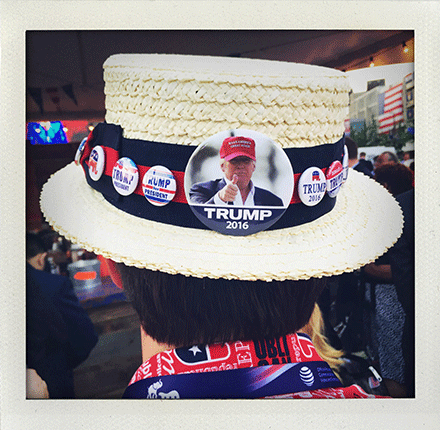
These are the two loudest moments of a very loud and very expensive brouhaha that repeats itself every four years: the presidential electoral campaign of the United States of America. The Democrats and Republicans each spend a billion dollars on the campaign.
It begins with speculation about possible candidates. They, in turn, announce their candidacies, some more ostentatiously, some more scantily. They raise funds for the primaries, and they throw in the towel if their poll numbers are lousy or their pockets are empty. Eventually it boils down to two – and this year it is Democrat Hillary Clinton and Republican Trump.
Unfiltered reporting
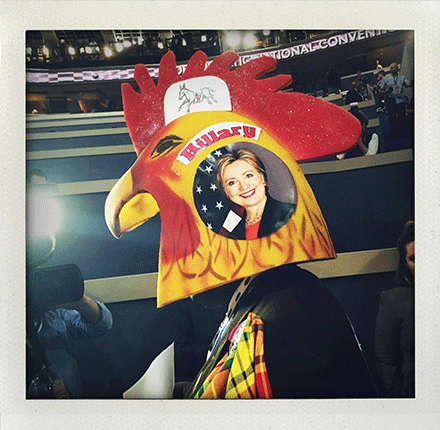
The journalistic approach is clear: The three of us are on-site, covering what we see, hear and experience, getting as close as possible, for unfiltered reporting.
We are there to supply four Blick channels, which is not easy with a time lag of six hours between the scene of the events and Switzerland. Especially since at these conventions the really exciting stuff usually happens way past the editorial deadline – the absurd performance of Trump’s wife Melania (46), President Barack Obama’s eloquent eulogy for his own term in office, Bill Clinton (70) declaring his love to Hillary. And yet, our daily paper is supposed to be up-to-date, profound, surprising – and to stand out from a sea of news. Just like SonntagsBlick, which is supposed to brighten Sundays with features that are at least latently topical.
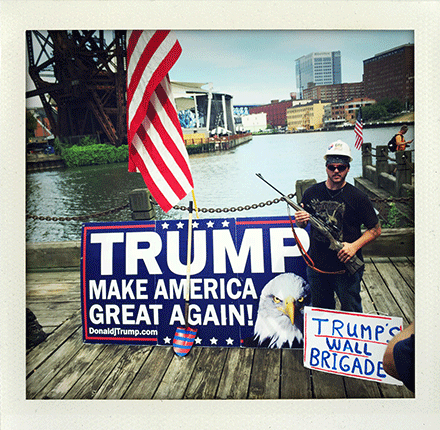
We ask Republican delegates in Cleveland what they think about Trump and learn one thing: They care more about stopping Clinton than they do about putting Trump into the White House.
We interview female Democrats in Philadelphia about how much it matters to them to get a woman nominated for the first time – and we learn that the older women in particular are proud of it, but their younger counterparts don’t consider Hillary to be the right woman.
Perfect political shows
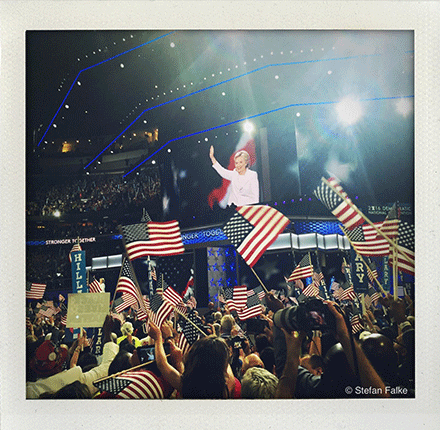
It is worth the effort. In the hall you can meet and have a brief chat or an interview with the likes of Watergate whistleblower Carl Bernstein (72) and Dutch right-wing populist Geert Wilders (52). Senator Carl Levin (82) tells you how he took down Switzerland’s banking secrecy.
All work and no play is bad for you, so we shoot a video comparing the Hillary and Trump fan merchandise, the caps and t-shirts, the posters, the mugs and the key rings. We find that Trump offers his fans a flashier and wider selection. The Democrats, on the other hand, dress more discreetly and stylishly. One juicy detail: Many Trump souvenirs are made in Asia and Latin America, even though Trump promises to bring jobs back from China and Mexico to the United States.
The Republicans spend four days in Cleveland blowing their own horn and treating themselves to lobsters and cigars. The city earns around 300 million dollars from the convention. Ten minutes down the road from the arena we find East Cleveland, one of the USA’s poorest and most dangerous neighborhoods, inhabited almost exclusively by blacks. The average annual income is 12,600 dollars. Houses are crumbling, cars are rusting away. A barber tells us that not a single penny the Republicans spend comes their way: a perfect story to illustrate what America is like outside the arena.
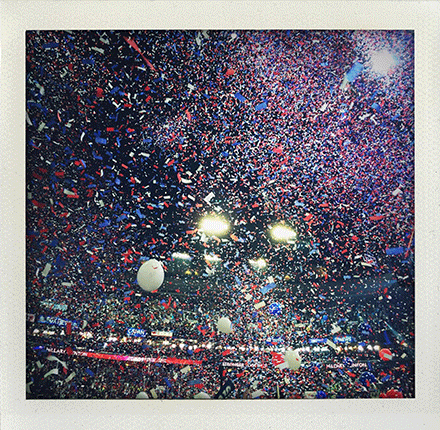
Late Night Snack
Thursday night in Philadelphia, or rather: early Friday morning. The last balloons are falling. Lush rock music is coming from the speakers. One last assessment on video, one last print item, and we begin the two-mile walk to our hotel. Our work is done and our appetites are up. We have scarcely found time to eat in the past fourteen days. Now it’s 3 a.m. and we are sitting at Checkers having burgers and fries. Pervaded by the smell of bad frying oil the diner looks like an Edward Hopper painting. Yes, it was great to work so intensely, pigging out on unadulterated politics. And then somebody says: «Maybe we’ll come back in four years. Maybe.»⎫